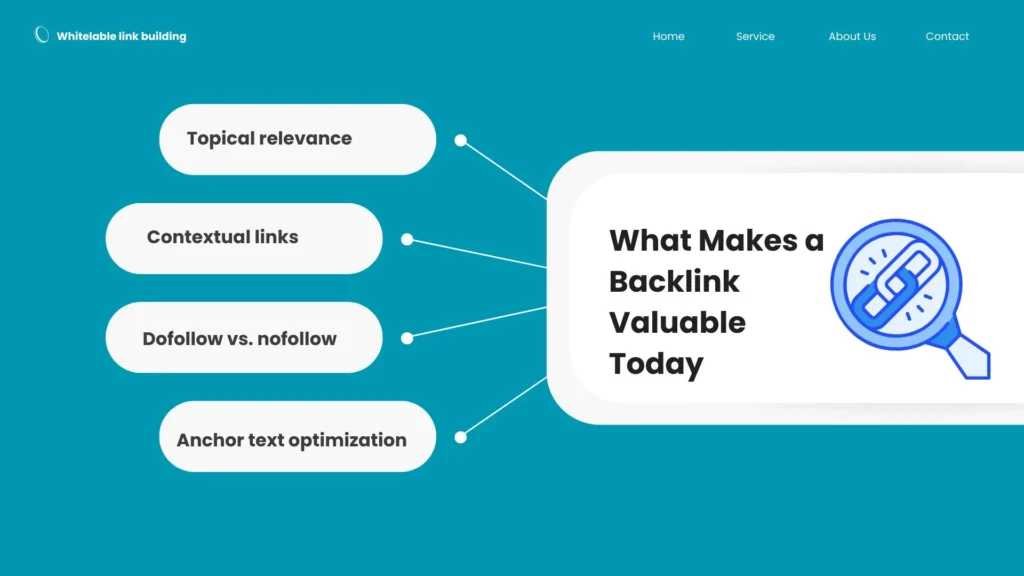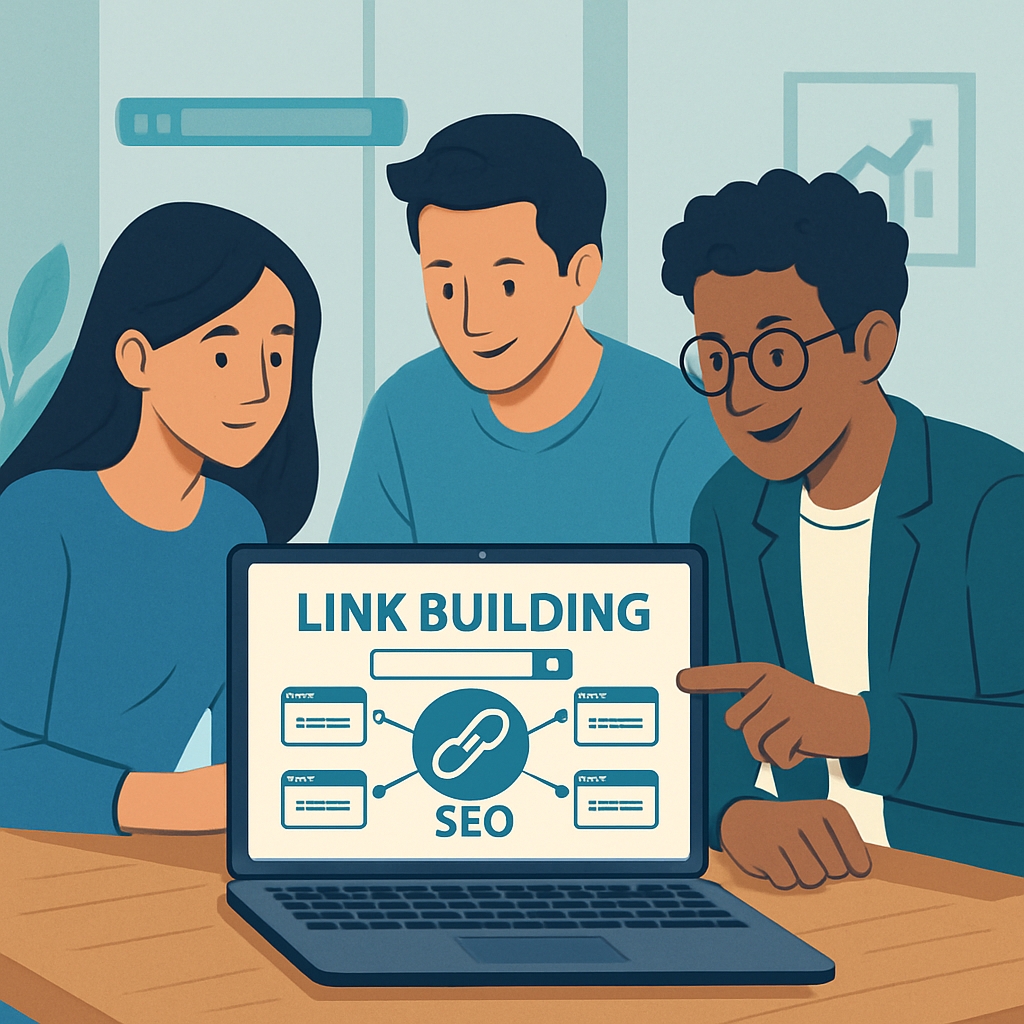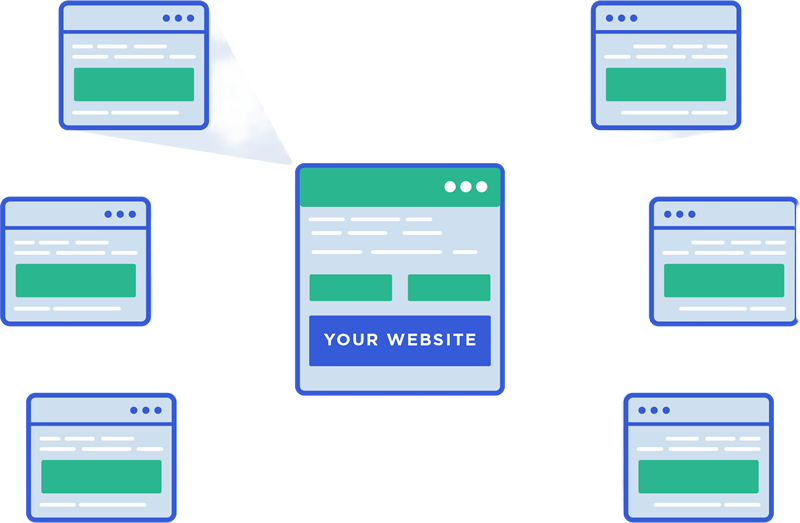
Backlinks remain one of the most powerful assets for startups seeking to establish online authority and enhance their search rankings. For early-stage businesses with limited brand recognition, a strong backlink profile sends clear signals of trust and relevance to search engines, helping accelerate visibility and growth. However, building backlinks is not just about quantity; quality, contextual relevance, and alignment with your brand’s goals are far more important.
Understanding essential concepts like PageRank, anchor text optimization, and referring domains is critical to developing a strategic and sustainable link-building approach. This ensures your startup gains lasting SEO success in today’s competitive digital era.
When you’re launching a startup, your website likely has minimal Page Authority (PA) and few referring domains. That puts you at a major disadvantage in organic search. Link building, done right, changes that.
Each high-quality backlink passes link equity (link juice) to your site, signaling to Google that others vouch for your content. This directly improves your PageRank, an underlying component of how search engines rank pages, even if it’s no longer publicly visible.
Startups that earn strong links early experience faster indexation, improved trust, and the ability to compete on high-value queries with established players. The effect isn’t instant, but it’s exponential.
Reminder: Backlinks won’t save poor content or a broken user experience. But paired with sound on-site SEO, they multiply your visibility, especially if your link profile is built with purpose.
Not every link helps. In 2025, search engines evaluate links using multiple quality signals:

Also consider co-citation and co-occurrence. Google looks at how your brand or page appears alongside other reputable sources, even when not directly linked. A strong presence across related topics increases your perceived authority.
Don’t chase only high-DR sites. A DR 85 link on a content-irrelevant page won’t outperform a DR 40 contextual link from a niche-relevant blog that drives real traffic. Prioritize relevance and placement over vanity metrics.
Most startups don’t have the luxury of hiring agencies or using expensive outreach tools. However, link building remains achievable with focused effort and a solid strategy. One effective approach is manual outreach, where you pitch guest articles or share insights with relevant industry blogs. Additionally, using the founder’s voice by offering interviews or startup origin stories to business publications can create authentic link opportunities.

Another valuable tactic is responding to HARO queries, as journalists frequently seek expert quotes; providing sharp, quotable replies can earn authoritative backlinks. Creating content that naturally attracts citations, such as original statistics, frameworks, or unique insights, also helps build a strong link profile.
While these methods require time rather than money, they result in earned, relevant, and sustainable links that support a natural link profile evolving alongside your brand.
Effective link building is key for startups to gain visibility and authority online. These five strategies focus on quality, relevance, and sustainability to help your startup grow a strong backlink profile that supports long-term SEO success:
Instead of mass-sending pitches, target blogs where your audience reads. Craft valuable, non-promotional articles, and include a dofollow link in your author bio or body where appropriate. Make sure the anchor text aligns with your keyword goals, but avoid stuffing.
A SaaS founder guest posts on a productivity blog with the anchor text “project collaboration tools,” linking to their homepage. That link supports both topical relevance and anchor text optimization.
Responding to media requests is a powerful way to earn authoritative backlinks. Aim for contextual placement, where the link to your site supports your quoted insight.
Founders using HARO consistently can secure 5 to 8 quality links per month with just an hour of outreach per day.
Create data-rich content that others want to cite. Think: original research, benchmarks, infographics, or market analysis. Ensure content freshness by updating these assets regularly, so they remain citation-worthy over time.

Use tools like Ahrefs or BrandMentions to find when your brand is mentioned but not linked. Reach out and ask for a citation. These requests often convert because the publisher already knows you.
Submit your site to industry-specific directories, incubator portfolios, and local business hubs. These links often appear in semantically relevant ecosystems, helping with both co-citation and backlink diversity.
Every link you pursue should serve more than SEO. Ask yourself:
For example, if you’re launching a new product, target links from review sites or product launch communities. If you’re hiring, earn links from career blogs or founder interviews. This multi-purpose approach ensures link velocity (steady acquisition) without wasted effort.
Link building can sometimes feel complex, especially when dealing with terms like PageRank, anchor text optimization, and link velocity. If any part of this process seems unclear, you’re not alone, and that’s why we’re here. At WhiteLinkBuilding.com, we offer clear guidance and personalized support to help you build a strong, natural backlink profile with confidence. Our mission is to simplify link building strategies and assist you at every step, ensuring your startup’s growth is both effective and sustainable.
Use metrics that truly reflect your progress, such as the growth of referring domains over time and increases in Page Authority or Domain Rating. Tracking traffic and conversions from pages with backlinks provides insight into the real impact of your efforts. Additionally, monitor the growth of co-occurring mentions and branded search volume to gauge your brand’s expanding presence.
It’s important to watch your link velocity carefully. Gaining 100 links in a single week can appear unnatural to search engines. Similarly, if 90% of your links share the same anchor text, it may signal manipulation and harm your SEO.
Experts on Search Engine Journal (SEJ) podcasts stress building a natural link profile with gradual link velocity and diverse anchor text. Real startup stories highlight the value of contextual links and sustainable growth.

Startups widely use HARO (Help a Reporter Out) to secure backlinks from major publications like Forbes and Entrepreneur by providing timely expert quotes. For example, a startup founder shared how responding to HARO queries led to multiple high authority mentions within months, nurturing their page authority and referring domains.
Combining insights from Ahrefs’ data studies, Moz’s Whiteboard Friday, SEJ podcasts, and HARO success stories creates a balanced, effective link-building strategy focused on link equity and topical relevance for sustainable SEO growth.
Link building is a long game. A typical timeline:
This delayed effect is why link equity is often underestimated. But once your site reaches a tipping point, organic growth becomes dramatically more efficient.
Backlinks serve as the currency of trust on the internet. For startups, earning quality backlinks isn’t just optional, it’s essential for growth. Effective link building goes beyond simply chasing Domain Rating (DR) or outsourcing outreach efforts. It means creating a link profile that aligns with your brand’s relevance, business goals, and stage of growth.
Focus on building links gradually and correctly; your search rankings will improve naturally. When you’re ready to take your link building strategy to the next level, trust WhiteLinkBuilding.com to provide expert guidance and proven solutions that deliver real results. Reach out today and let us help you build the authority your startup deserves.
How can startups build backlinks without spending a lot of money?
Startups can build high-quality backlinks through manual outreach, HARO responses, guest posting, and creating linkable assets like original research or infographics. These methods rely more on time and strategic effort than on budget, making them ideal for early-stage businesses aiming for sustainable growth without agency costs.
What type of backlinks should startups prioritize in 2025?
Focus on contextual, dofollow links from niche-relevant sites. Prioritize quality over quantity, targeting blogs, media outlets, and directories that align with your product or audience. Backlinks embedded naturally in content and supported by co-citation or co-occurrence signals carry more SEO value in 2025.
How long does it take for link building to impact SEO for startups?
Most startups see a noticeable SEO impact from backlinks around 3 to 5 months after initial efforts. Full compounding effects, like keyword gains and domain authority growth, typically appear between months 6 to 12. The process is gradual, but consistency leads to long-term organic visibility.